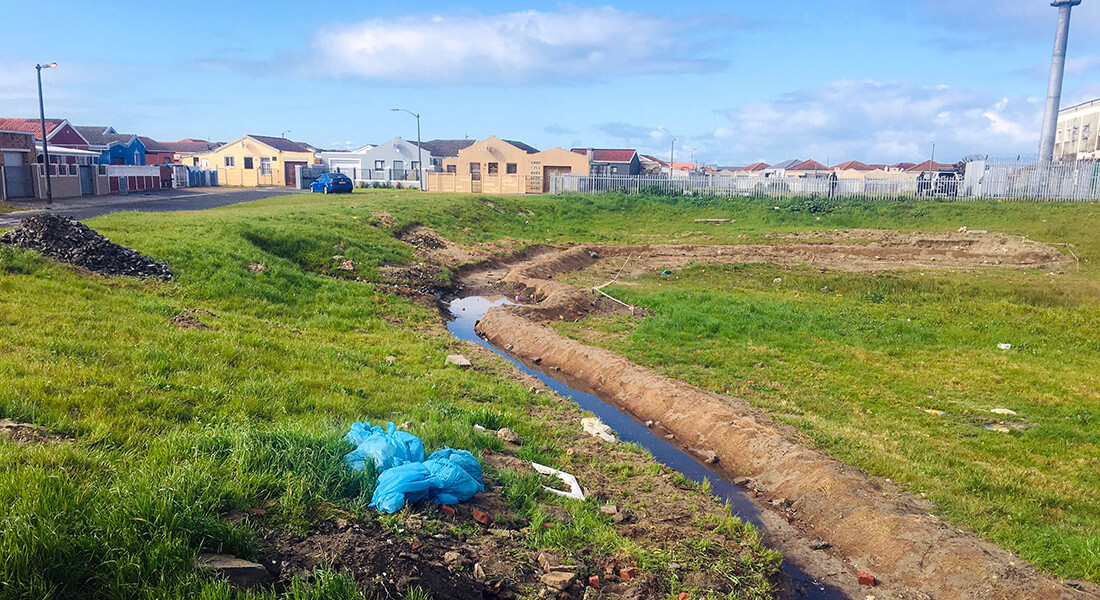Nature-based solutions in fast-growing cities in Africa

Fast-growing cities in Africa do not have much room for nature-based solutions. They also lack space for recreational areas and meeting places. At the same time, many African cities have a whole network of outserved water infrastructure consisting of stormwater/detention ponds. In Cape Town alone there are 800 of these. They are often in poor condition and are used for waste, etc. But what about revitalising them?
A new project is experimenting with solutions that can upgrade the areas so that they can better handle water, but also become recreational hotspots for the city’s citizens.
The project is experimenting with how stormwater ponds can get more functions than ‘just’ to contain the rainwater, e.g. such as being able to clean and filter even more water down to the groundwater. It also experiments with how the local population around an area can take part in both water experiments and in the development of recreational areas, their further operation and maintenance.
For several years, researchers from the Department of Geosciences and Natural Resource Management (IGN) have collaborated with African University partners and cities on climate adaptation and the development of urban green areas to tackle climate challenges such as flooding and drought.
For the past three years, our focus has been on South Africa, where IGN and researchers from the University of Cape Town have evaluated already established nature-based solutions in Johannesburg and experimented in 1:1 with nature-based solutions.
IGN has received funding from Danida to continue the work in South Africa over the next three years.
The area used to be dry and barren but now it is lush and green"
“I saw the leopard toad and butterflies. I never thought this site was for anything else but rubbish, but it can also be for me and the nature around me”
The city government in Cape Town does not have the resources to transform and maintain all stormwater ponds, so the local population is brought into play. Initially there was resistance – they do not have much trust because of apartheid, but by participating in the various activities, they now feel ownership of the areas”
Read more about the project on the websites
https://ign.ku.dk/english/paws/
www.futurewater.uct.ac.za/news/pathways-water-resilient-south-african-cities
Contact
 Project manager
Project manager
Lise Herslund
lihe@ign.ku.dk
Mobil: 26 36 45 01
Participants in the project
Lise Byskov Herslund, Marina Bergen Jensen and Patience Mguni from IGN.
Kirsty Carden, Neil Armitage, Amber Abrams, Craig Tanyanyiwa and Julia Mclachlan from the University of Cape Town.

